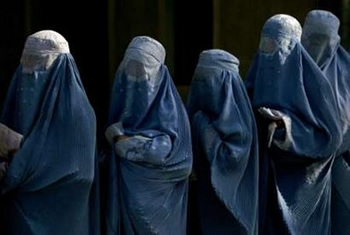18-09-2024
Stella Liantsi
South and East Asia Researcher,
Global Human Rights Defence.
Indian Prime Minister Narendra Modi often used hate rhetoric against Muslims and other minorities throughout his 2024 election campaign. During his campaign to win his third consecutive term in power which started on June 9th, Modi’s Hindu majoritarian Bharatiya Janata Party (BJP) leadership made remarks encouraging prejudice, hatred, and violence against disadvantaged communities on several occasions.
These are some key aspects of hate speech and anti-Islamic statements expressed by Prime Minister Modi in the 2024 election campaigns. Modi warned that Muslims may overtake the Hindu majority by calling them “infiltrators” and claiming that Muslims had “more children” than other populations with the aim to instill fear in Hindus that they would become a minority. Modi asserted in a speech on May 14th, in Koderma, Jharkhand, that “infiltrators have threatened the security of our sisters and daughters” suggesting that Muslims were a threat to Hindu women’s safety. He asserted that Congress and opposition parties supported Pakistan and “terrorists” furthering negative stereotypes.
In another speech in May, Modi stated that the opposition would damage the recently opened Hindu Ram Temple, which was controversially built atop a razed historical mosque at Ayodhya drawing the differences between Muslims and Hindus. In addition, in a speech in Dhar Madhya Pradesh, Modi painted Muslims as underserved and privileged and falsely claimed that the opposition Congress Party was planning to give Muslims preferential treatment in sports. Additionally, he made unfounded claims that if the Congress Party won they would transfer the wealth and properties of other populations among Muslims.
Simultaneously, and after Modi came to power in 2014. discriminatory actions and policies by the government and the lack of the authorities to hold those in charge responsible encouraged a culture of impunity leading to more and more violations. Muslims have been attacked, harassed, and discriminated against in several parts of the country with the authorities being inactive and closing their eyes to these incidents.
India is party to various international treaties and conventions and is obliged to follow and uphold its obligations. Article 20(2) of the International Covenant on Civil and Political Rights (ICCPR) states that “any advocacy of national, racial or religious hatred that constitutes incitement to discrimination, hostility or violence shall be prohibited by law”. Article 4(a) of the International Convention on the Elimination of All Forms of Racial Discrimination requires states to take action against hate speech and incitement of racial discrimination. Even though ICERD primarily addressed racial discrimination, discrimination based on religion when linked to national or ethnic origin can fall under the scope of the Convention. In cases when religion and ethnicity are intertwined this expands the protection to cover religious minorities (UN Committee on Elimination of Racial Discrimination General Recommendation No. 30 2004). Regarding the domestic legislation, although India has rules against hate speech, such as Section 153A (promoting enmity between different groups on grounds of religion, race, place of birth, residence language, etc) and 295A (deliberate and malicious acts, intended to outrage religious feelings of any class by insulting its religion or religious beliefs) of the Indian Penal Code, there are issues with their inconsistent implementation.
Indian Prime Minister has denied claims of anti-Muslim prejudice by highlighting India’s democratic, secular, and diversity standards. In interviews with the media, he stated that his party and its associated groups are not against Muslims and stressed that these kinds of matters are outside of their focus.
Sources and further readings:
Human Rights Watch. (2024, August 14). India: Hate speech fueled Modi’s election campaign. Human Rights Watch. Retrieved September 18, 2024, from https://www.hrw.org/news/2024/08/14/india-hate-speech-fueled-modis-election-campaign. Accessed 18 November 2024.
India Penal Code, Act No. 50 of 1860, enacted October 6, 1860, entered into force on January 1, 1862.
International Covenant on Civil and Political Rights, adopted 16 December 1966, entered into force 23 March 1976. United Nations General Assembly, Resolution 2200A (XXI) (ICCPR).
International Convention on the Elimination of All Forms of Racial Discrimination (adopted 21 December 1965, entered into force 4 January 1969) United Nations General Assembly, Resolution 2106 (XX) (ICERD).






Comments